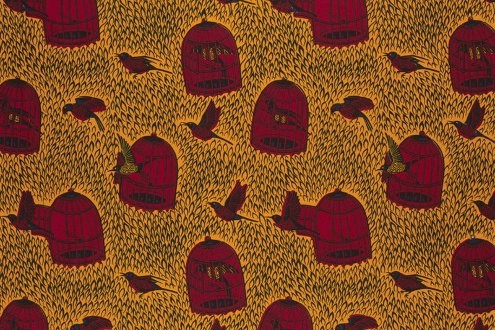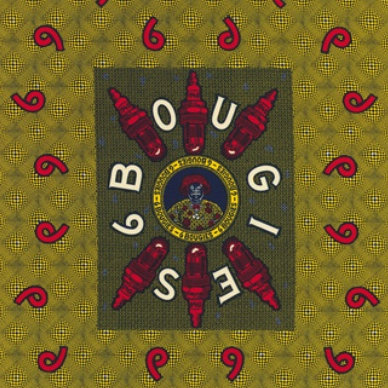
A brand named Vlisco has long been in the business of selling wax print textiles in African countries such as Ivory Coast, Ghana and Nigeria where these fabrics were used in traditional wrapped fashion styles.
Sellers used to tell stories about the prints to make them more attractive to their customers. The above Vlisco classic for instance, depicting birds escaping a cage, is called ‘Si Tu Sors Je Sors’, French for “if you cheat on me, I’ll cheat on you.”

The 1945 design ‘Six Bougies’ (six spark plugs) originally signified wealth, but in recent years it has come to mean a woman who can take on six men.
These very African textiles originally came from Indonesia by way of the Netherlands. Somewhere during the 1860’s, Messyness Chic reports, the uncle of a Dutch entrepreneur convinced his nephew to use a recently acquired factory in Helmond to produce batik, wax-dyed cloth.
Making batik the Indonesian way, by hand, took a lot of time, so using machines to do the work would cut down on the cost. Unfortunately for Vlisco, these machine produced textiles could not compete with the real thing and the Indonesians rejected them. However, the little flaws in Vlisco’s product appealed to West Africans because it meant every garment would be unique.
Although Vlisco only has stores in Africa, in 2014 the company created a special edition fabric to commemorate the inauguration of the new Dutch King.
(See also: Congo Story; photos: Vlisco)
